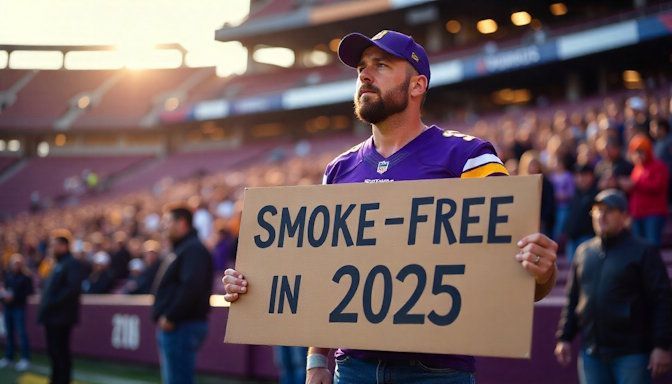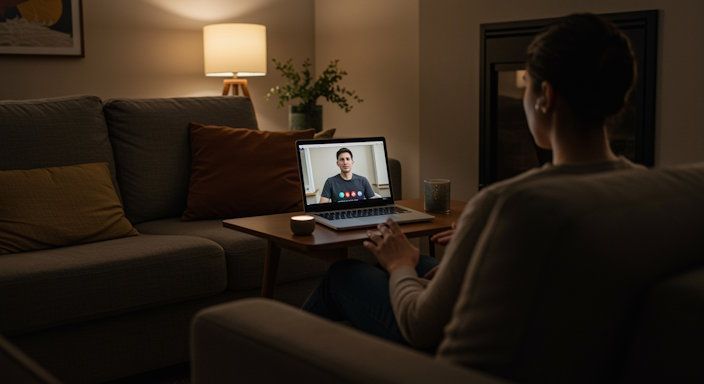Why Is Hypnosis the Most Effective Way to Quit Smoking in Minneapolis?

TLDR: Explore how hypnosis leverages the mind‑body connection to help Minneapolis smokers quit, compares evidence and local resources, and highlights our clinic’s 40‑year expertise helping neighbors become smoke‑free.
What smoking problems does Minneapolis face, and how can local solutions like hypnosis help you quit?
Walk around Uptown, Nicollet Mall, or along the Mississippi riverfront and you’ll smell it – the lingering scent of cigarettes still curls out of café patios and behind office buildings. Despite Minnesota’s strong tobacco control policies and one of the highest cigarette taxes in the country, about 13 percent of adults in the state still smoke, according to 2022 data compiled by the Truth Initiative. Vaping has crept into neighborhoods as well: nearly 7 percent of Minnesota adults use e‑cigarettes and nearly one in five high school students reported using electronic vapor products in 2020. Hennepin County and the city of Minneapolis have responded with strong ordinances that restrict flavored tobacco, prohibit sales in pharmacies and set minimum prices for cigars, yet thousands of Twin Cities residents are still struggling to break a nicotine habit.
For forty years I have watched these numbers from my practice in south Minneapolis. Clients come through my door frustrated because patches and gum didn’t stick or because counseling alone didn’t help them re‑write the rituals that revolve around smoke breaks. Many have never considered hypnosis until a friend or health professional suggested it. This article explains why hypnosis remains overlooked and why, when delivered by a seasoned hypnotherapist, it can be one of the most effective tools in your quit‑smoking arsenal.
What is hypnosis, and how does it work to help Minneapolis smokers quit?
Hypnosis is often portrayed in films as mind control or sleep, but the therapeutic technique is far more grounded and collaborative. In my clinical practice it is a focused, relaxed state where you remain fully aware yet more receptive to positive suggestions. With my guidance, you allow your mind to temporarily set aside the distracting chatter of everyday life so we can address the beliefs and habits that keep you smoking. Hypnosis taps into natural brain processes – the same pathways that advertisers use when pairing cigarettes with images of freedom or pleasure. By deliberately activating those pathways, we can help you disconnect smoking from daily routines and rewire cravings to healthier activities.
The Centers for Disease Control and Prevention explains that quitting is challenging for two reasons: your brain must get used to being without nicotine and you must relearn routines without a cigarette. Nicotine triggers the release of feel‑good chemicals and over time your brain feels it needs nicotine just to feel normal. When you stop, withdrawal can make you anxious, irritable or unable to sleep. Hypnosis addresses both challenges by reducing cravings and helping you visualize new smoke‑free routines. In a hypnotic state we can rehearse your morning coffee without a cigarette, practice dealing with stress at work, or reimagine your favorite rooftop patio as a place to enjoy fresh air rather than fumes. Because hypnosis happens in your mind, it is adaptable to Minneapolis’s seasons – whether you’re warming your hands at a winter bonfire or lounging at Lake Harriet in July.
What does research say about hypnosis for quitting smoking, and how does it apply to Minneapolis residents?
Scientific studies offer an important baseline for evaluating any health intervention. A randomized trial conducted at the San Francisco VA Medical Center compared hypnotherapy to standard behavioral counseling for smokers. After one year, 22 percent of participants in the hypnosis group abstained from cigarettes versus 15 percent in the counseling group. Among smokers with a history of depression, hypnosis performed even better: 27 percent were still smoke‑free at one year compared to 16 percent who received counseling. Lead researcher Timothy Carmody noted that while results were statistically comparable overall, the data suggest hypnosis may be particularly helpful for people whose mood disorders exacerbate their addiction.
Because high‑quality trials are difficult to conduct in behavioral therapies, evidence on hypnotherapy remains mixed. A 2018 Cochrane Review examined 14 randomized controlled trials encompassing nearly 2,000 participants. The reviewers concluded there was no clear evidence that hypnotherapy is superior to other behavioral interventions or no treatment. They found that available studies were small and at high risk of bias. This does not mean hypnosis is ineffective; rather, it underscores the need for rigorous research and experienced practitioners who integrate hypnosis with proven cessation strategies. For example, nicotine replacement therapy (patches, gum, lozenges) can reduce withdrawal symptoms while hypnotic suggestions help re‑train behavior. In my practice, the synergy between hypnosis, evidence‑based counseling and physician‑supervised medications produces higher quit rates than any single method alone.
Why is hypnosis often overlooked as a quit‑smoking tool in Minneapolis?
If hypnosis holds such promise, why is it not at the top of everyone’s quit‑smoking list? One reason is that tobacco companies and pharmaceutical firms spend billions marketing nicotine replacement products. In contrast, hypnotherapy is provided by individual clinicians who rarely have advertising budgets. Another reason is perception: many people associate hypnosis with stage shows or entertainment rather than serious health care. Some worry they will lose control or reveal secrets. In reality, you remain in charge at all times and can end the session whenever you wish. Hypnosis is a cooperative process that uses your imagination to change habits; you cannot be made to do anything against your values.
Clinical Hypnosis also requires a highly skilled practitioner. Minneapolis has numerous life‑coaches and unregulated “hypnotists” offering quick fixes. Without formal training in clinical hypnosis, these providers may deliver superficial scripts that fail to address the underlying psychology of addiction. As a certified clinical hypnotist with four decades of experience, I spend time understanding each client’s history, triggers and motivation. We then craft suggestions that resonate with your lifestyle. For example, a nurse working night shifts near Abbott Northwestern Hospital faces different cues than a graphic designer at a North Loop co‑working space. Hypnosis should be deeply personalized to work well. Want to learn more? Come read more here: www.QuitSmokingMinneapolis.com.
How do local factors in Minneapolis influence smoking and quitting?
Our city and state have done much to curtail tobacco use. Minnesota invests more per smoker in its quit line than the national average and offers free one‑on‑one coaching, text support and quit medications through the Quit Partner program. Teens can access the My Life, My Quit program by texting “Start My Quit” to 36072. The state also funds specialized programs for pregnant people and those with mental health conditions. For American Indian residents, a culturally tailored quitline staffed by indigenous coaches is available. These services are invaluable and should be part of any comprehensive quitting strategy.
Yet the numbers show that many Minneapolis residents are still struggling. The truth initiative notes that the adult smoking rate in Minnesota is 13 percent, only slightly below the national average. Smoking‑caused health care costs in Minnesota total $2.92 billion per year, and lost productivity costs another $5.4 billion. Tobacco taxes raise revenue, but the economic burden of smoking remains enormous. Quitting not only benefits your health but also frees hundreds or thousands of dollars a year that would otherwise be burned away. Hypnosis can help make that transition more attainable.
As a long‑time resident and business owner, I understand the unique cues that trigger cravings here. Winter drives many of us indoors, and stepping outside for a smoke becomes an excuse to get fresh air. Summer festivals like the Uptown Art Fair or community concerts at Lake Harriet tempt smokers with social rituals. Minneapolis’s culture of craft breweries and patios adds to the challenge. In hypnosis we rehearse these scenarios and build mental rehearsals that replace the cigarette with something else – stepping out for a quick breath of cold air without smoking, savoring an herbal tea at a brewery or focusing on the music rather than the habit.
What should you expect from a quit‑smoking hypnosis session in Minneapolis?
When you work with Quit Smoking Minneapolis, you’ll find a welcoming, private office. The first session begins with a consultation where we discuss your smoking history, previous quit attempts, stressors and motivations. I explain the science of nicotine and withdrawal, review any medical conditions and collaborate with your physician if you are using medications. We also identify your personal triggers – perhaps you smoke when driving down Interstate 94, when chatting on a downtown balcony, or during Vikings games.
During the hypnotic induction, you settle into a comfortable chair and I guide you through breathing and imagery to achieve a relaxed, focused state. You remain awake and can speak if needed. Once you are receptive, I deliver tailored suggestions that align with your goals: strengthening your resolve, associating cigarettes with unpleasant tastes or smells, or picturing yourself enjoying Minneapolis parks and bike trails as a healthy non‑smoker. We rehearse coping strategies for stress and social situations. Often I record portions of the session so you can reinforce the suggestions at home.
After the session we debrief and develop a plan for reinforcement. For many clients, one session initiates the change, but follow‑up sessions provide additional support, adjust suggestions and address new triggers. I also encourage combining hypnosis with evidence‑based aids: using a nicotine patch, attending a support group or working with the Quit Partner coaches. My goal is to create a supportive, locally informed toolbox that helps you become permanently smoke‑free.
Why does local experience matter when choosing a Minneapolis clinical hypnotist?
Experience breeds intuition. Having helped Minneapolis residents quit smoking for forty years, we recognize patterns and pitfalls that newer practitioners might miss. We have worked through the eras of unfiltered cigarettes, the surge of menthol advertising, the introduction of vaping and the recent rise of nicotine pouches. We've seen how cultural shifts – from indoor smoking bans to wellness trends – influence motivation. We've also developed networks with physicians, mental health professionals and quit lines, so clients receive integrated care.
More importantly, as part of this community. we shop at local co‑ops, walk along Minnehaha Creek and cheer for the Twins. Clients appreciate that their therapist understands the rhythm of Minneapolis life and can weave local landmarks into hypnotic imagery. In a city famed for its lakes and art, your quit journey should reflect those positive elements rather than generic scripts.
What are the key takeaways on hypnosis as a mind‑body approach for Minneapolis smokers?
Hypnosis is not a magic wand, and no single method works for everyone. But when delivered by an experienced, certified professional and combined with evidence‑based quit aids, it can be a powerful catalyst for change. Research shows hypnosis can be as effective as counseling, especially for people with co‑occurring depression, and systematic reviews call for more high‑quality studies. Locally, we face unique triggers and opportunities: high tobacco taxes, accessible quit lines, strong community support and a vibrant outdoor culture. By harnessing the mind‑body connection through hypnosis, you can turn these factors into allies rather than obstacles.
If you’re ready to explore hypnosis as part of your quit‑smoking journey,
reach out to schedule a consultation. Together we’ll design a program rooted in forty years of clinical expertise and tailored to your life in Minneapolis. Your lungs, loved ones and bank account will thank you!









